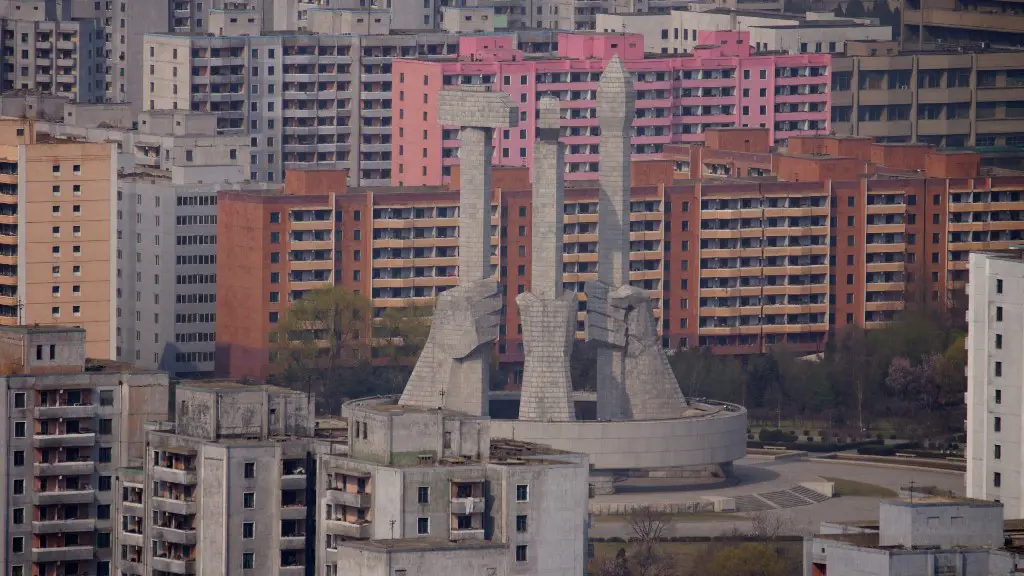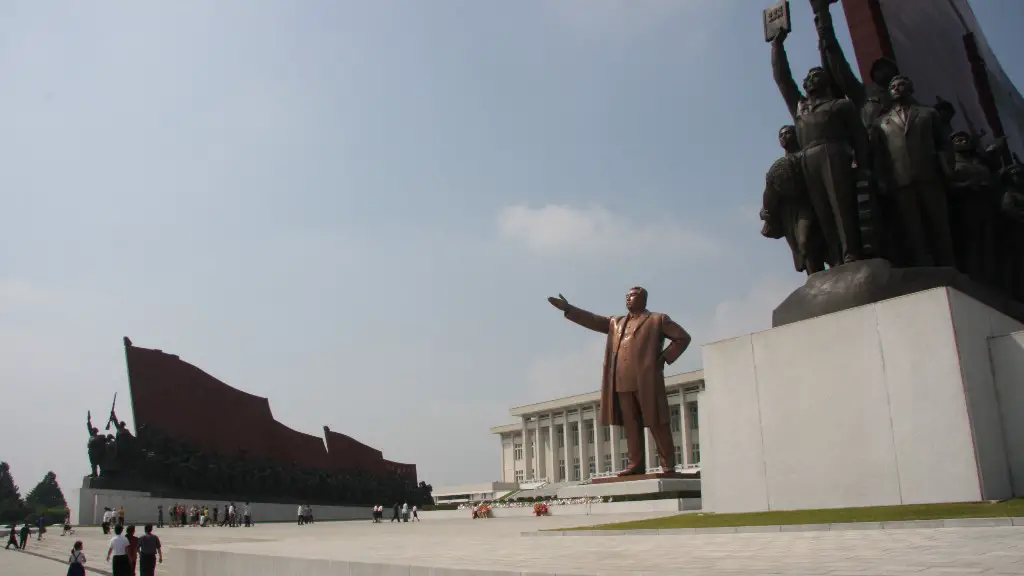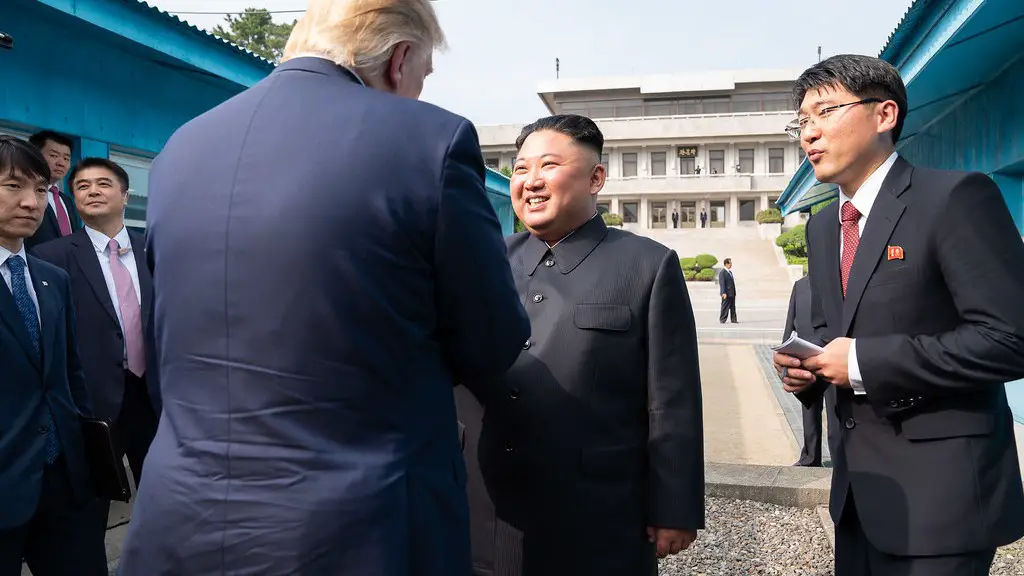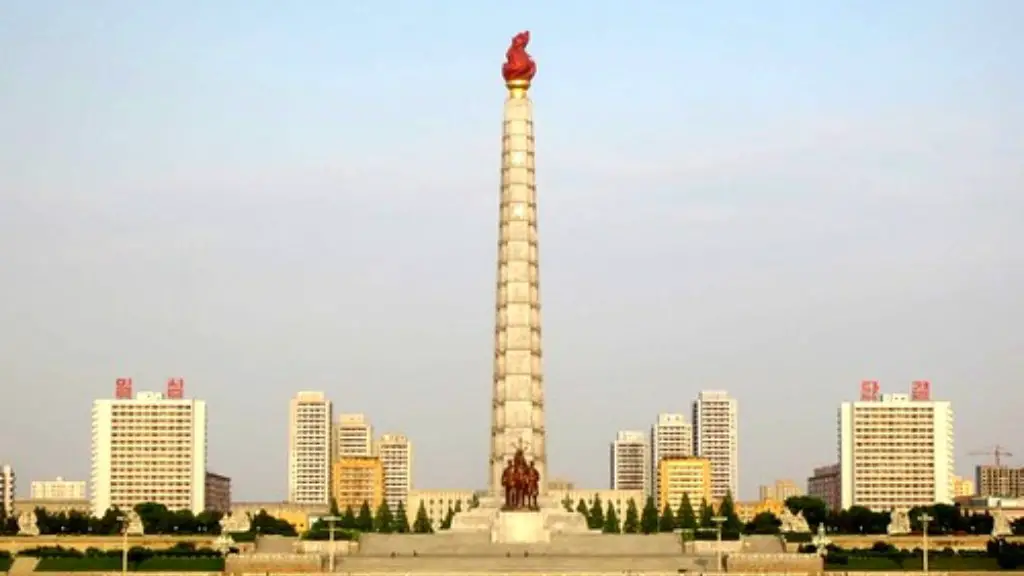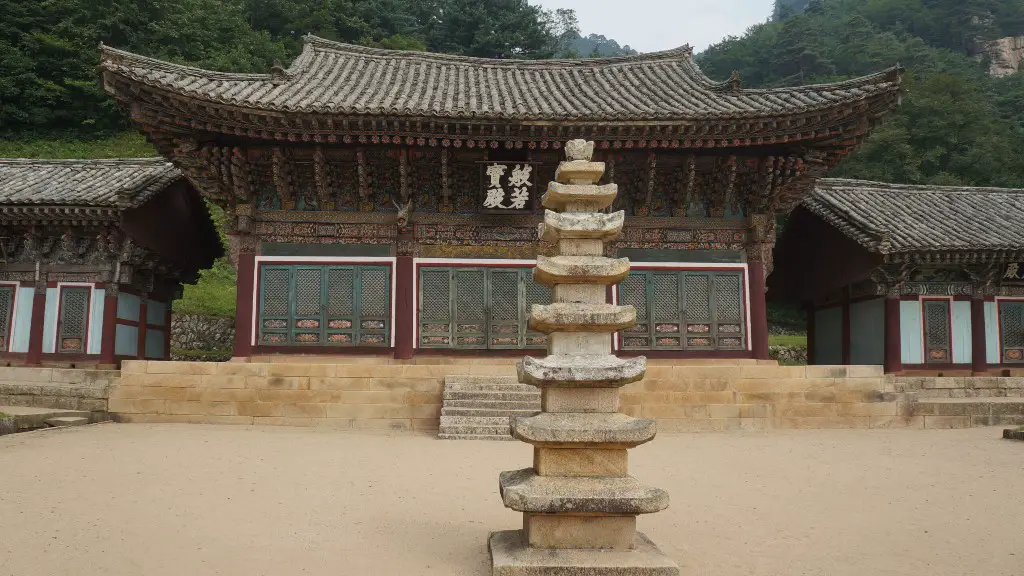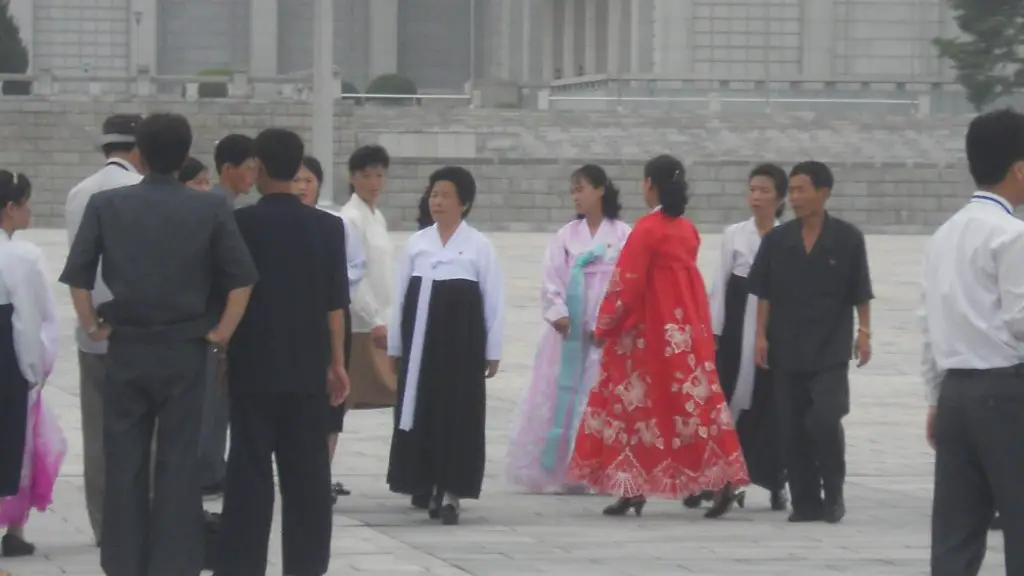Legacy of Regime
North Korea has been an enigmatic regime for over five decades. As a result, the legacy of the regime is hard to measure, with past actions entrenched in secrecy.
Through the legacy of regime, North Korea has managed to sustain itself despite immense economic and social sanctions imposed by international watchdogs, such as the United Nations.
North Korea maintains a totalitarian grip on its people and its economy. The Dear Leader Kim Jong-il, and now his son Kim Jong-un, have continuously repressed the freedoms and rights of their citizens.
The lack of economic and political reform, coupled with an uncompromising stance on nuclear weapons and weapons of mass destruction, has led to increased international pressure and scrutiny on the North Korean government.
The international community is now wondering what would happen if North Korea falls.
The economic and political impacts of a possible collapse would be massive, with North Korea’s nuclear weapons programme posing a direct threat to the world’s nuclear non-proliferation goals.
Experts have suggested that the collapse of North Korea could result in mass migration and terrorism.
The impact of a North Korean collapse would be felt regionally and globally, and the loss of its nuclear capabilities would also be destabilising for the region.
Impact on Neighbouring Nations
The impact of North Korea’s collapse would reverberate throughout the region. South Korea would arguably take the greatest brunt of the fallout.
The success of the South Korean economy has been built on taking advantage of natural resources in the North and this could be in serious jeopardy if the North Korean regime fell.
South Korea would also have to face the challenge of absorbing millions of refugees, as many North Koreans would flee the country in search of political and economic stability.
The Chinese government is also wary of the potential impact of a North Korean collapse, as it would have to manage the influx of refugees and the potential for instability in the region.
China is North Korea’s key ally and trading partner, and has been instrumental in mediating between North Korea and the international community.
Japan would also be affected by a collapse in North Korea, as the country is within range of North Korea’s long-range missiles.
The Japanese government is already preparing for the possibility of a North Korean collapse by fortifying its defences and strengthening ties with the US.
Impact on World Peace
If North Korea falls, it could have far reaching implications for global peace.
North Korea has always maintained a belligerent stance towards the international community, and a collapse in regime could embolden the country to act more aggressively.
Though the regime is currently in control of nuclear weapons, the collapse could see the weapons falling into the wrong hands as the regime could not guarantee the security of these weapons.
The threat to global peace could be compounded by the presence of armed militia from North Korea’s ally, China.
The oppressive regime of North Korea has also seen the country become a haven for terrorist groups, including Al-Qaeda and other radical Islamists.
The collapse of the regime could see these extremist organisations operating more freely and potentially exploiting any political instability and chaos that may arise.
North Korea has managed to survive for so long because of its cynical use of international diplomacy, and its determination to remain isolated from the international community.
The collapse of the regime could see the consequences of this isolation escalate.
Impact on Economy
The economic consequences of a North Korean collapse would be significant.
In the longer term, a collapse in regime could lead to economic growth and a thriving market as the people of North Korea would be exposed to new trading opportunities that were previously impossible due to the ramifications of sanctions imposed on the country.
However, in the short term, the economy would be in turmoil and could take several years to recover.
The cost of rebuilding the country would be huge and difficult to estimate as there is virtually no existing infrastructure. Additionally, the North Korean economy is largely based on black market activities and smuggling.
In order to jump-start to the economy and make it more attractive to businesses and investors, the country would need to open up to foreign companies and implement liberal economic reforms.
Furthermore, the international community would need to be involved in the rebuilding process as financial aid would be necessary in order for North Koreans to have access to medical facilities, food, shelter and basic services.
The collapse of North Korea would also affect existing trade deals between countries such as China, Japan and South Korea, as new trading relationships would need to be formed.
Effects on Nuclear Programme
North Korea is one of the few countries possessing nuclear weapons, and the collapse of the regime would undoubtedly have a large impact on its nuclear programme.
The international community has long called for the dismantlement of North Korea’s nuclear arsenal and a collapse in regime could provide the perfect opportunity for this dismantling to take place.
However, any dismantling would have to be closely monitored, as the North Koreans have proven to be adept at secret nuclear diplomacy and could use the collapse as an opportunity to build their arsenal.
The fall of the regime and the eventual dismantlement of its nuclear weapons would be a major boost to the world’s nuclear non-proliferation goals.
It would also be a huge step forward in international relations and could be a catalyst for a new era of peace and security.
The US and other international powers are currently engaged in diplomatic talks with North Korea, in the hope of achieving a peaceful resolution to the crisis.
The collapse of the North Korean regime could be the spark that leads to the success of negotiations, leading to a new era of peaceful co-existence between North Korea and its neighbours.
North Korea’s Human Rights Record
One of the most pressing concerns arising from a collapse in North Korea would be the protection of the people’s human rights.
The regime has been a long-standing violator of these rights and the international community is currently pushing for political and economic reforms to address these violations.
If the regime collapses, it is hoped that the new government will be more responsive to the needs of its people.
North Koreans have been subjected to arbitrary arrests and indefinite detention, the denial of food and medical care, and the use of slave labour and forced labour.
These human rights violations have been well-documented by international watchdogs, and it is hoped that any new government would put an end to these injustices.
Although the future of North Korea is uncertain, it is clear that a collapse of the regime would be a major turning point for the international community.
The effects of the fall of the regime would be felt both regionally and globally, and there is the potential for an unprecedented shift in the dynamics of international relations.
Resolution Plan
In the face of increasing international pressure, the North Korean government is slowly beginning to accept the need for change.
The government has recently taken steps to engage with the international community and build economic ties with the wider world.
In order to ensure a successful transition, the international community must prepare a resolution plan to ensure the lasting stability of the country and its people.
The plan should include measures to bring political and economic reform, such as free and fair elections and free markets.
It should also include measures to protect the rights of North Korean citizens, including the removal of oppressive laws and the abolishment of forced labour camps.
The plan should also set out objectives for the eventual dismantling of North Korea’s nuclear arsenal.
Ultimately, the North Korean people must be given the freedom and the opportunity to decide their own future and the resolution plan should ensure this.
The international community should also ensure that the North Korean people are provided with the necessary resources to rebuild their shattered nation and achieve prosperity.
Creating Stability Post-Collapse
The collapse of the North Korean regime would be an unprecedented event, and creating stability post-collapse could prove difficult.
The North Korean military could potentially become a major destabilising force in the region, as it is still loyal to the regime.
The international community must plan for the potential for violence and chaos in the region and must be prepared to intervene if necessary.
The new government must also establish the rule of law and a functioning justice system in order to bring an end to any civil unrest.
The international community should also provide assistance in the form of economic aid, as well as resources to help rebuild the infrastructure of the country.
Furthermore, an international peacekeeping force should be established to ensure that the transition to a new government is peaceful and orderly.
The collapse of the North Korean regime could be an opportunity for the international community to create a more peaceful and prosperous world for all.
The fall of the North Korean regime could open up new possibilities for international collaboration and cooperation, and could potentially lead to a new era of stability in the region and the world.
